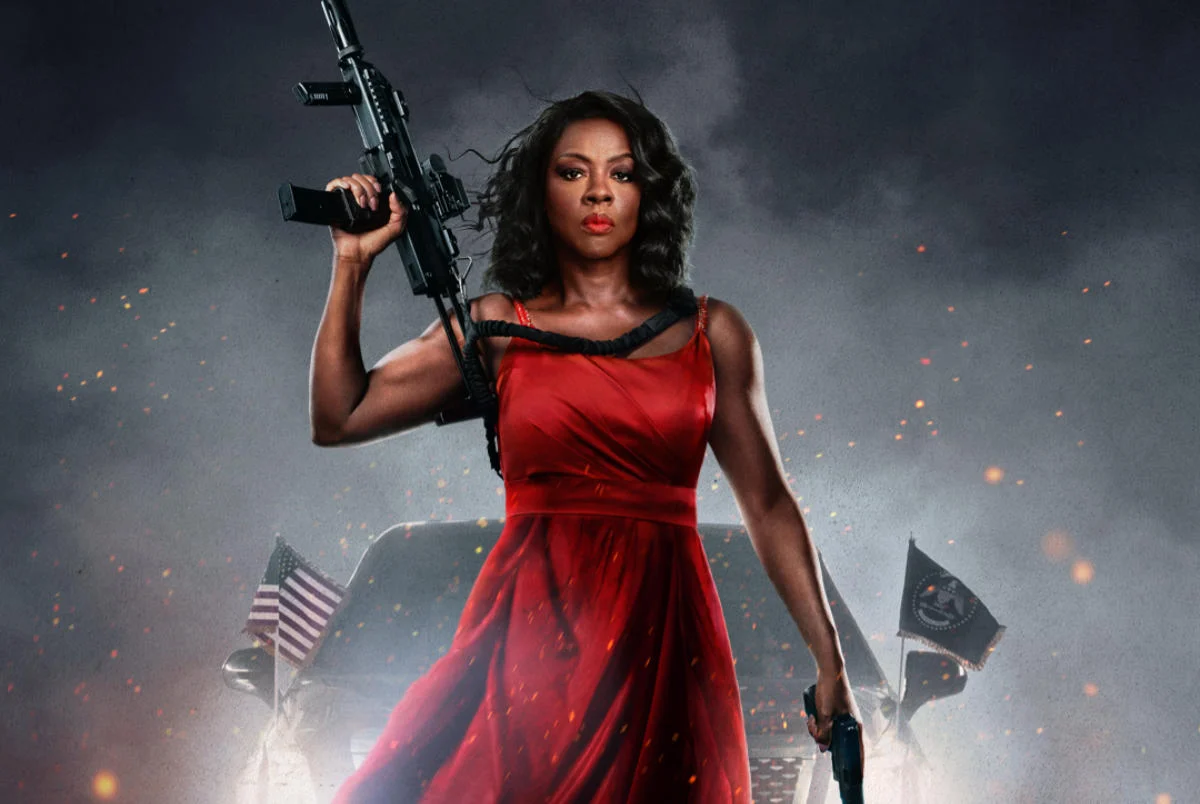In a cinematic landscape frequently preoccupied with superhero fatigue and endless reboots, Amazon’s geopolitical action thriller G20 arrives like a jolt of classic genre nostalgia—though not necessarily in the way we hoped. Directed by Patricia Riggen (The 33, Jack Ryan), and starring the ever-commanding Viola Davis, G20 is a well-intentioned, glossy streaming spectacle that struggles to rise above its own template. While the premise is timely, the execution, unfortunately, never fully delivers the sophistication or staying power its star power might suggest. This is Air Force Onemeets Designated Survivor, but with fewer fireworks and shallower stakes.
G20
Viola Davis, wielding both gravitas and grit, plays President Danielle Sutton, a former military officer turned Commander-in-Chief. When a G20 summit in South Africa is hijacked by tech-savvy terrorists led by Antony Starr’s crypto-obsessed villain Max Archer, Sutton is thrust into the kind of pulse-pounding survival scenario that feels pulled from a 90s Die Hard knockoff. Instead of pushing policy, she’s punching goons. The political backdrop gives the illusion of weight, but it’s ultimately just set dressing for a formulaic punch-fest.
That’s not to say there isn’t fun to be had. Davis clearly relishes her rare opportunity to play the action hero, channeling both the warrior queen energy of The Woman King and the intellectual authority of her more dramatic work. She commands the screen, even when the script can’t keep up. The film finds its most resonant moments in Davis’s physicality—whether disarming mercenaries or dishing out steel-eyed speeches—though these moments are fleeting.
The narrative itself doesn’t quite capitalize on its political conceit. Archer’s scheme—a dystopian mix of cryptocurrency evangelism and deepfake propaganda—feels oddly contemporary, even plausible. But rather than exploring the ramifications of tech-fueled destabilization, G20 quickly devolves into a run-of-the-mill siege story. The commentary on digital banking, foreign aid, and international policy is tossed out early and never revisited with the depth it deserves. Starr, as Archer, chews scenery with a deranged charisma, but the film never allows his ideology to be anything more than mustache-twirling chaos. He’s menacing, sure, but hollow.
Visually, G20 is slick and expensive-looking, benefiting from Riggen’s steady, if unremarkable, direction. The action sequences are kinetic but rarely inventive—largely shot in tight corridors, hotel suites, and urban backstreets. It’s serviceable, and sometimes thrilling, but never transcendent. You can practically feel the algorithm in the room, calculating engagement metrics as each scene unfolds.
One of the film’s missed opportunities is the underdeveloped subplot involving Sutton’s daughter, a rebellious teen caught in the crossfire. Their strained relationship is introduced with enough emotional gravity to suggest a payoff—but it lands with a thud in the final act, the bond feeling more like a script obligation than a genuine arc. It’s emblematic of the film’s overall approach: promising ingredients left undercooked.
The writing team, which includes Logan and Noah Miller (White Boy Rick), attempts to weave tension and relevance into a popcorn package, but too often falls back on clichés. Dialogue swings between over-exposition and awkward banter. There are flashes of intelligence—particularly when Sutton and Archer verbally spar—but these are isolated moments in an otherwise predictable script. A film fronted by an actor as capable as Davis shouldn’t feel so emotionally inert.
And yet, there’s something undeniably cathartic about watching a hyper-competent Black female president lay waste to a team of crypto-fascist mercenaries. For all its flaws, G20 delivers on that fantasy. It’s a streaming movie for a lazy weekend, the kind you might forget within hours but enjoy just enough in the moment. Like many of Amazon’s original films, it trades ambition for accessibility.
The real draw here is Viola Davis herself. She elevates the material through sheer force of will. Her performance alone makes G20 worth a watch, especially for those craving a strong, capable leader on screen amid a world where real ones feel in short supply. But even she can’t fully rescue a film that’s content with being “good enough.”
It’s hard not to imagine what G20 could’ve been with a sharper script, a more daring political stance, or a director willing to experiment beyond the genre’s well-worn formulas. As it stands, it’s a passable action flick with a powerhouse lead—and sometimes, that’s all an audience is looking for.
Final Verdict: Watchable, occasionally thrilling, but ultimately forgettable.






